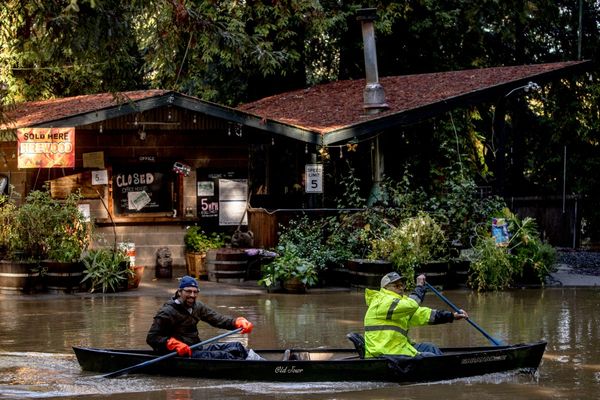
A cooling tower in Melbourne's west has been pinpointed as the likely source of Victoria's deadly legionnaires' disease outbreak.
Health authorities are confident the spread has been contained after the site at Laverton North was identified as the source and dozens of towers in the suburb and neighbouring Derrimut were disinfected.
"I am hopeful we've contained the source of the outbreak," Chief Health Officer Clare Looker told reporters on Monday.
"Further work is being undertaken now that we have this positive result to quantify the amount of legionella in the sample.
"Recent weather patterns could explain the wider than usual dispersal of cases."

A man in his 60s and a woman in her 90s died after being caught in the outbreak.
Dr Looker said the peak had most likely passed as the number of confirmed cases remained at 77 on Monday, with 75 admitted to hospital.
"This shows a continued reduction in the number of cases being notified each day compared to last week," she said.
"I'm confident that we are now past the peak of the cases associated with this outbreak."
Testing is still being conducted on at least 54 industrial buildings' cooling towers in Laverton North and Derrimut.
"These visits continue as we speak," Dr Looker said.
"The speed and rigour of this investigation meant we were able to get on top of this outbreak quickly and limit any potential risks to the public."
Dr Looker said the outbreak source was a "big site" and similar cooling towers were typically found at shopping centres and workplaces.

However, no further details on its exact location were provided.
The Laverton North site was visited on Tuesday and disinfected within 24 hours.
"This gives us increased confidence that we have identified and already treated the source of this outbreak," Dr Looker said.
Legionnaires' disease is caused by the legionella bacteria, found in natural bodies of water, spas, warm water systems, potting mix and artificial systems that use water for cooling.
Symptoms can include pneumonia, chest infection, aches, headache, fever, cough and chills.
About 10 per cent of legionnaires' patients die.
People most at risk are adults over 40 - especially those with other medical conditions - people who are immunocompromised, or those who smoke.
Authorities are urging anyone who has visited Melbourne since mid July to seek medical advice if they develop legionnaires' symptoms.







